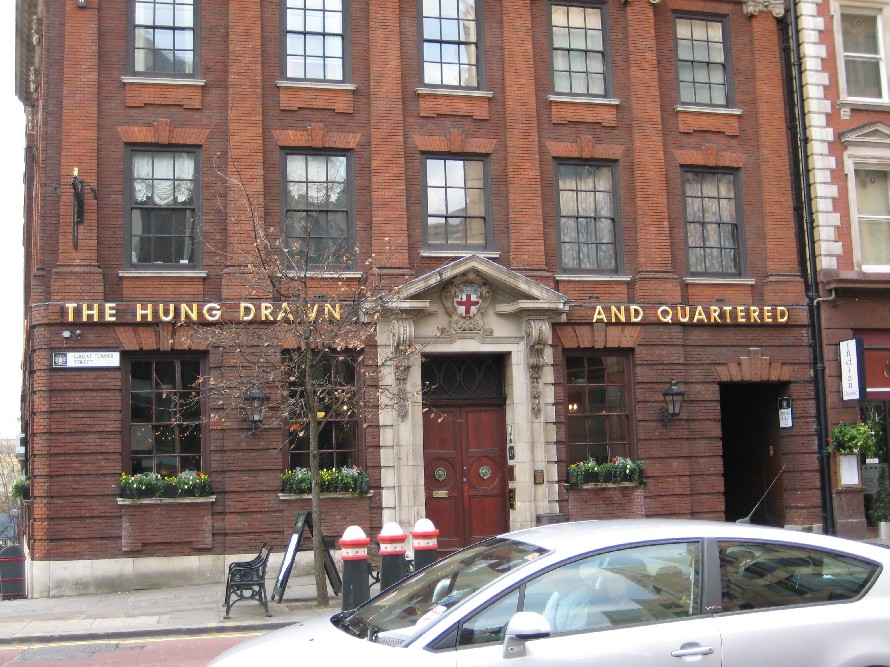
We took a walking tour through the City of London and in one area we saw where criminals were tortured. In the same area there is now a pub with the appropriate name of "The Hung, Drawn and Quartered".
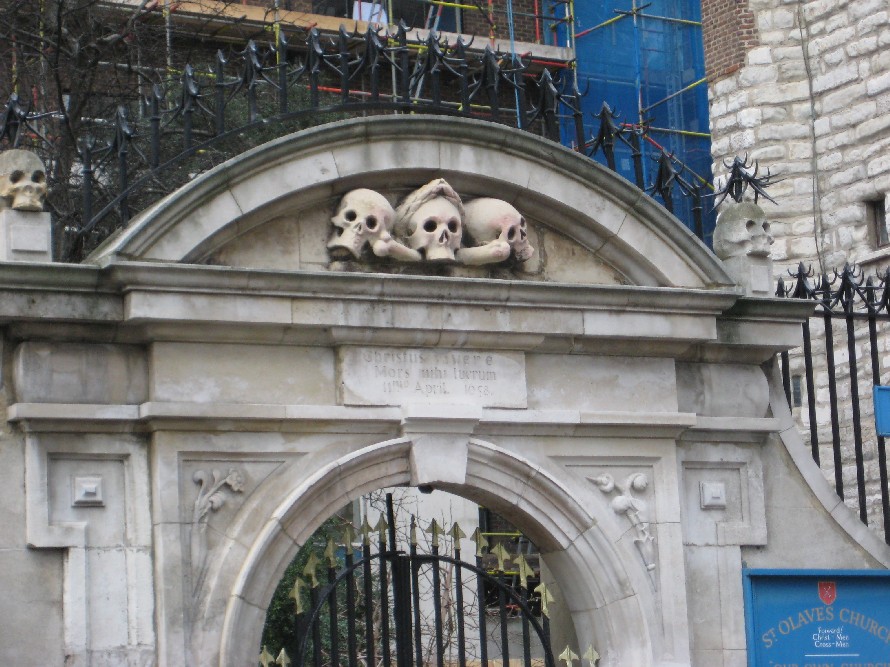
St Olave's Church is one of the few surviving medieval churches in London, the present building dates from 1450. It is well known for its 1658 entrance to the church courtyard with the grinning skulls.
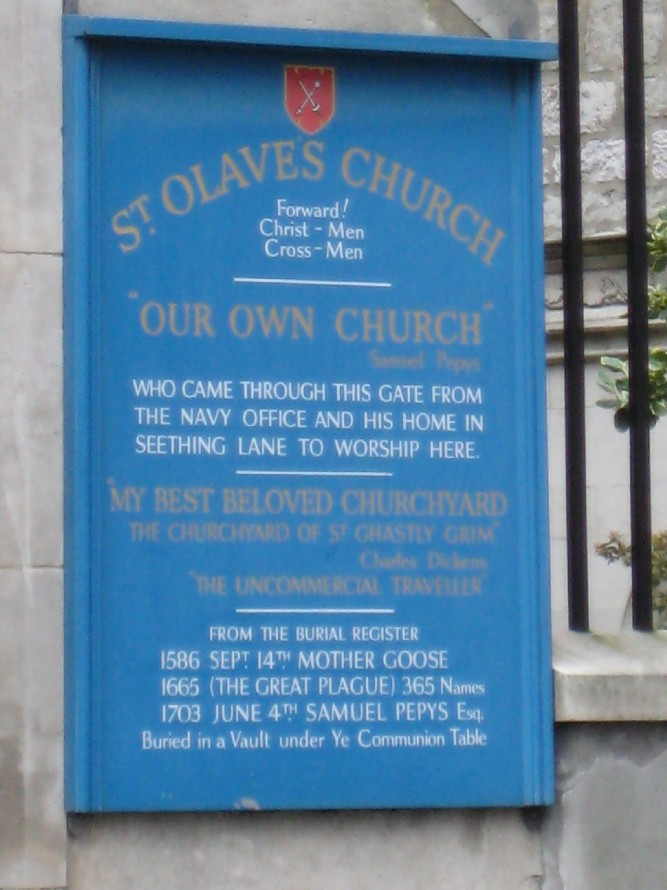
A close up of the sign into St Olave's church, showing that Mother Goose was on the 1586 burial register.

As we were just walking through London we came across this medieval tower that had survived the great fire of 1666 as well as the WW2 blitz.
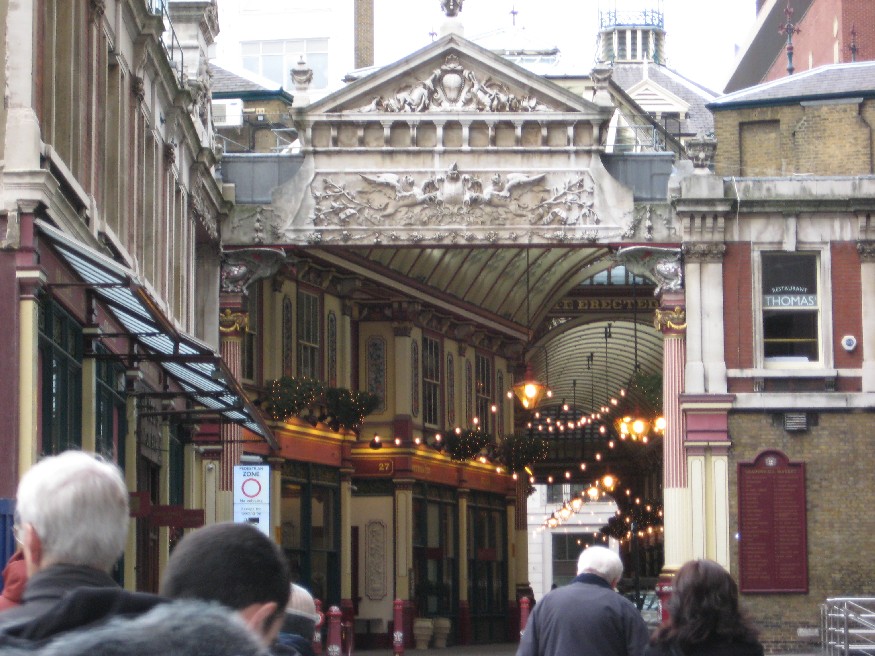
In the past there were multiple covered shopping areas in London from the 1800's. One of the nicer examples is the one pictured that now has many upscale shops.
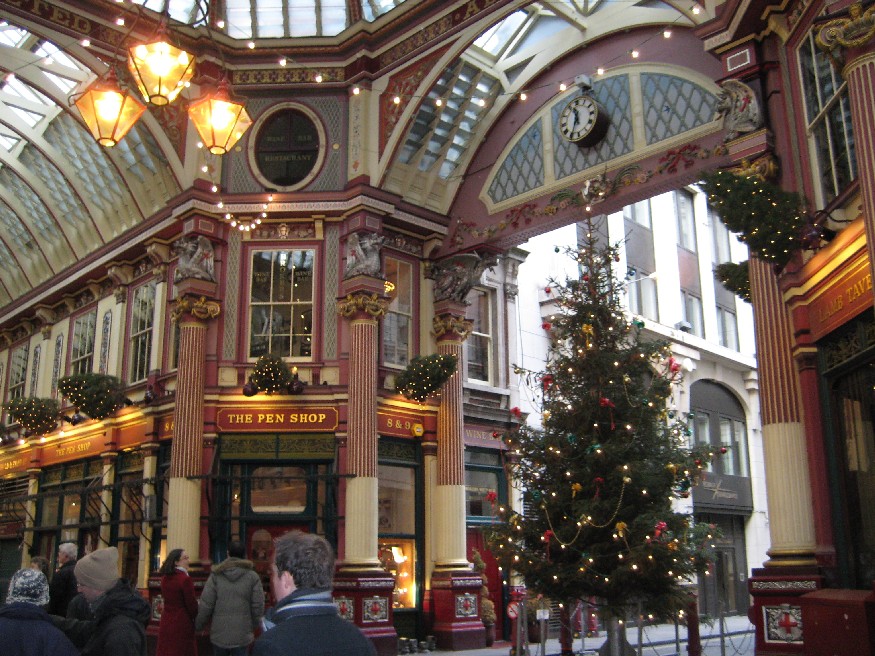
As it was Christmas time the shopping area was particularly well decorated, however as this was a Sunday all of the stores were closed.
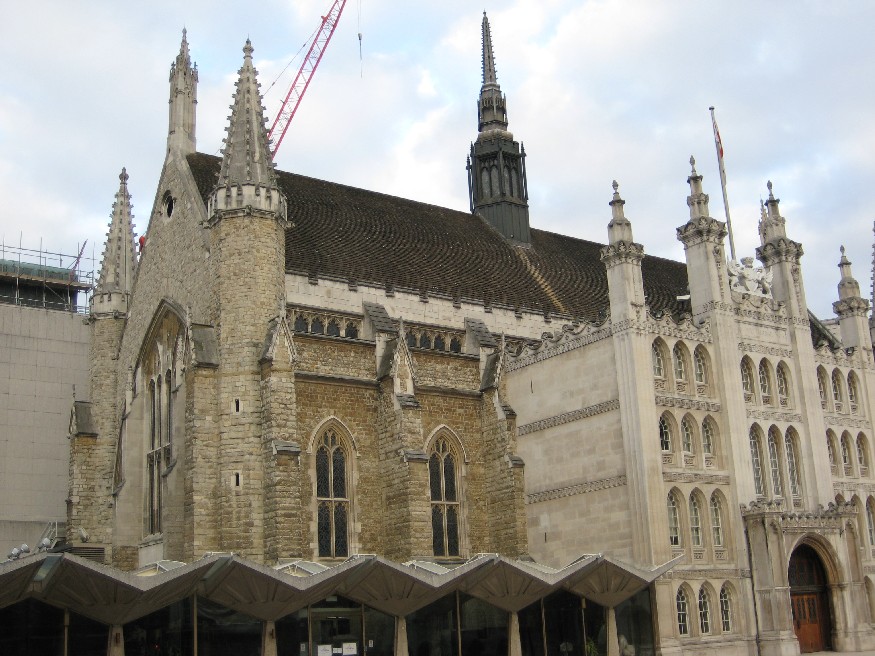
In the City of London is this interesting church with a variety of styles as it was built up through the ages, unfortunately we could not view the interior as it was closed during our stop.

Unfortunately we only got a blurry picture of this gate, however it is important as it is the only remaining gate that was built into the wall surrounding London. Many european cities had been built with walls for protection and multiple gates were built into the walls to allow entry.
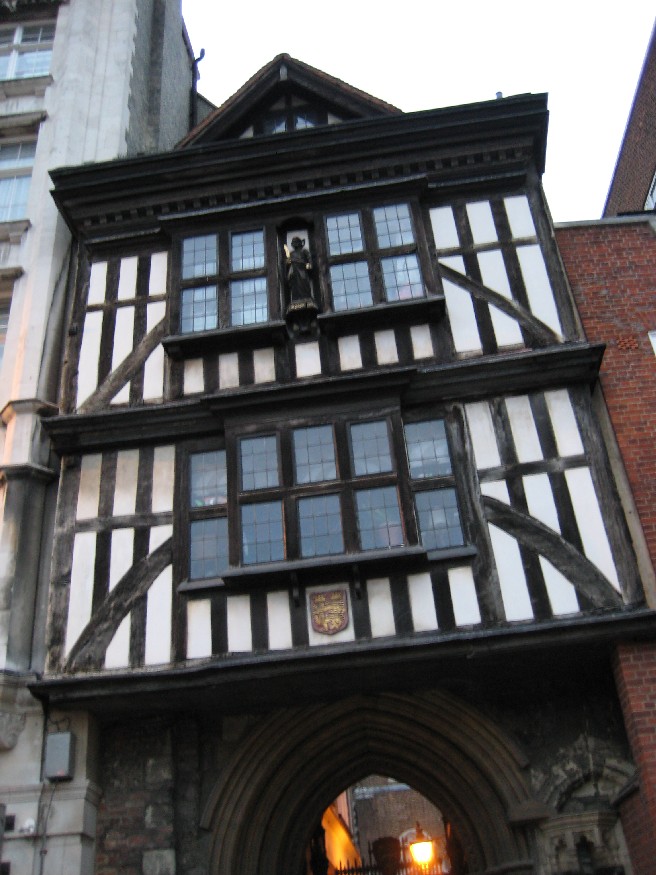
After the great London fire of 1666 there were not too many wooden buildings left standing. Here is a good example of an old wooden building that would have been prevalent in London in the 1600's.
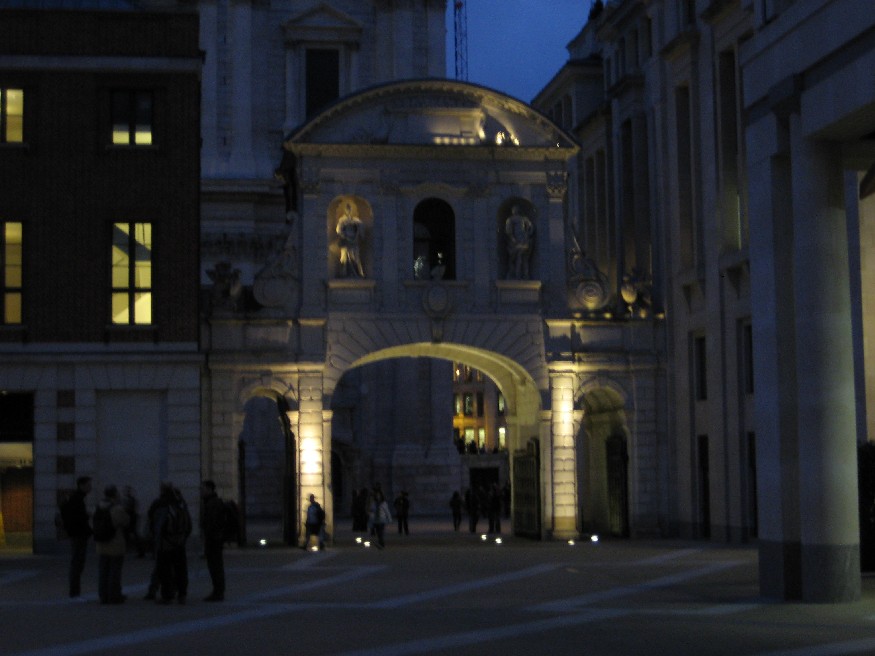
Temple Bar was one of the gateways into London. In 1878 it was removed from London as it's location was blocking traffic in the expanded London. In 2004 it was returned to London not from from St Paul's Cathedral. While it looks like it is in the middle of the night, it was only 4:00pm in the evening when this picture was taken.
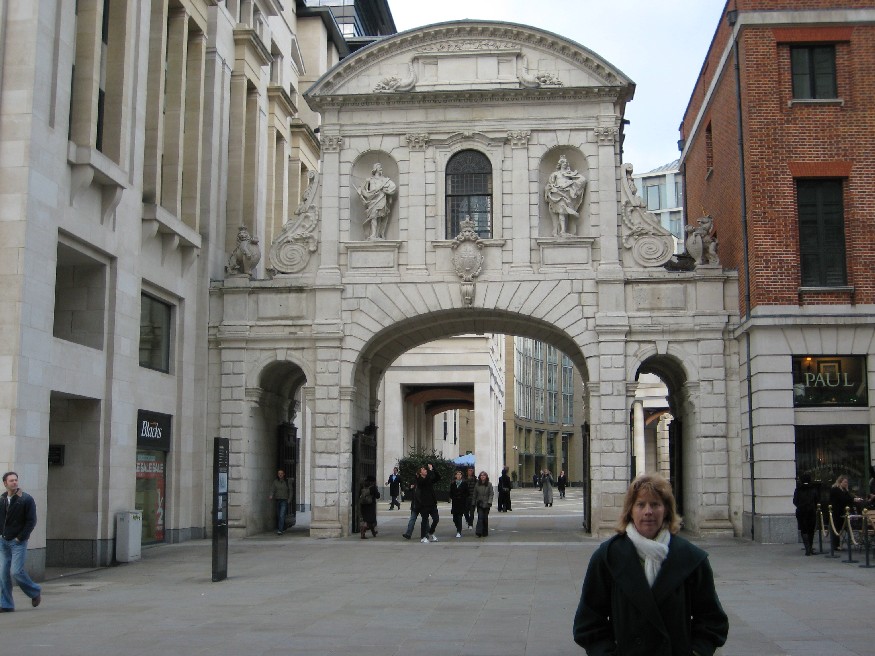
Another picture of Temple Bar, this time during the day and with Susan in the foreground.
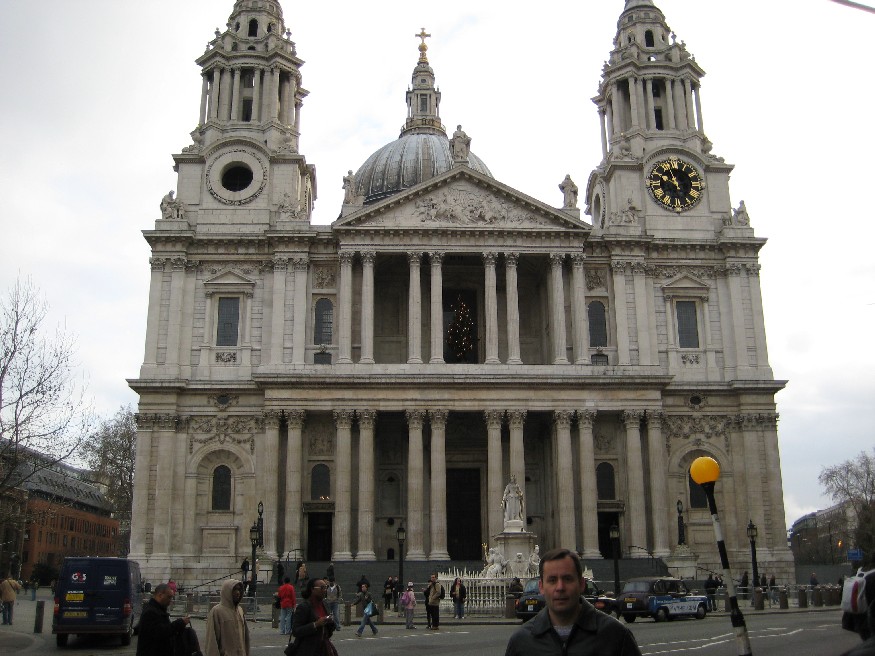
Tom standing outside the famous St Paul's Cathedral, which was completed in 1708 after having been gutted in the fire of 1666. Despite beeing targeted during the blitz, it survived without major damage. We did not visit the interior as individual tickets were $20/person, hard to justify when Notre Dame is free.
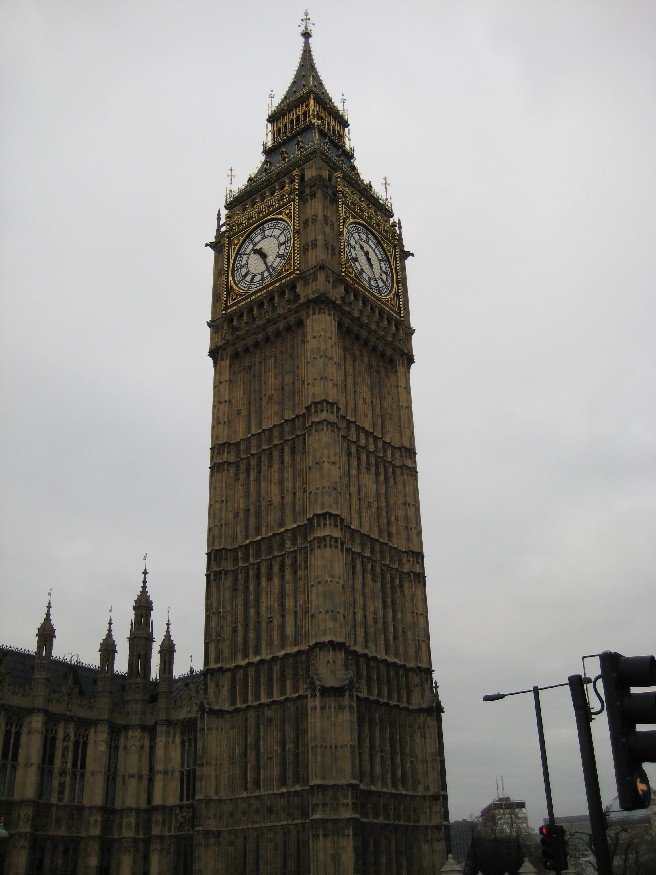
The famous Big Ben, one of London's most famous landmarks. Completed in 1858 it is relatively new compared to other parts of London.
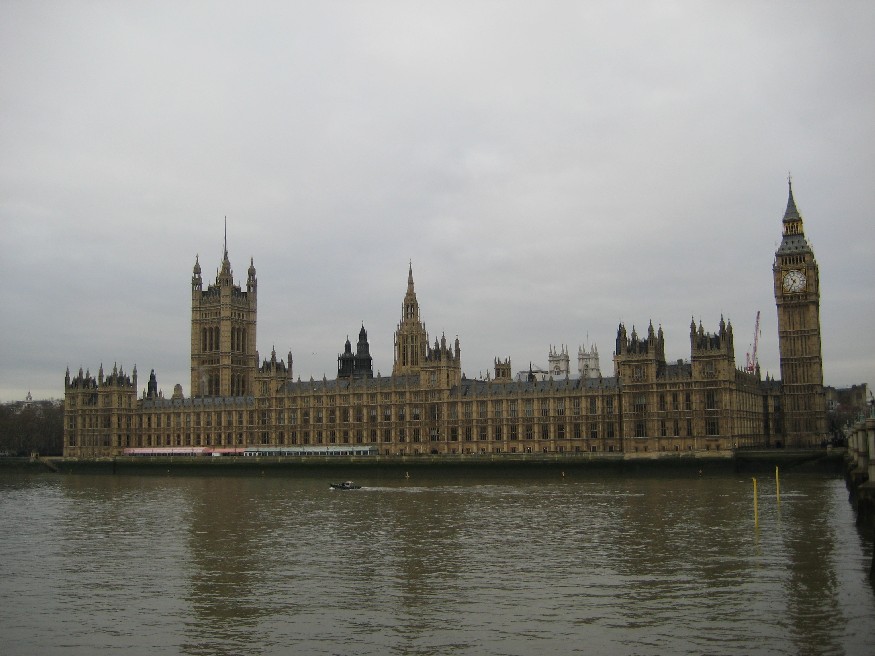
Another famous London structure is the Houses of Parliament. Like Big Ben it was rebuilt in 1858 after a fire in 1834.
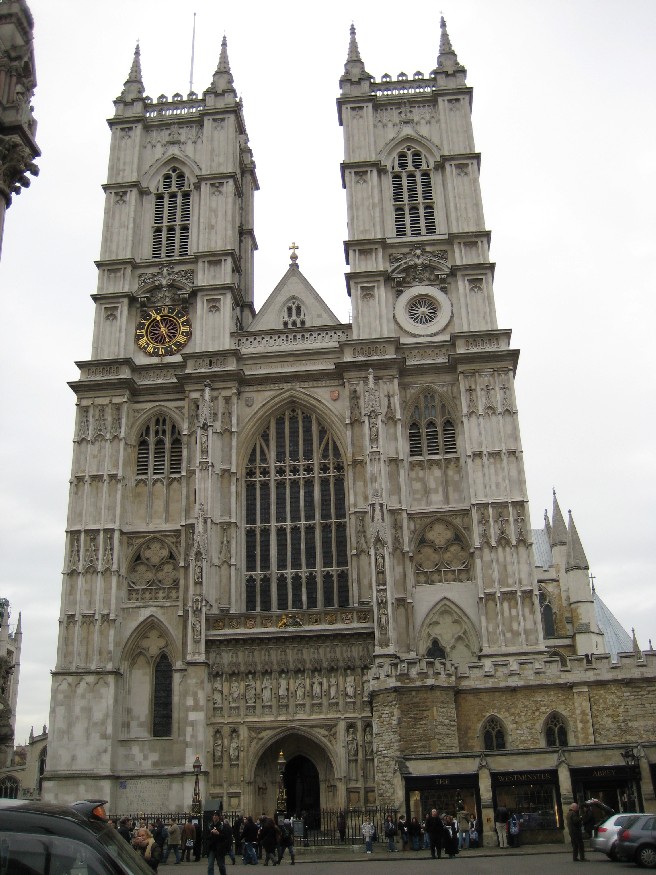
Westminster Abbey has been the site of coronations of English monarchs since 1066, the abbey itself was built around 1050. Both monarchs and famous individuals (such as Isaac Newton) are buried in the abbey.

The official London residence of the British monarch is Bukingham palace, which was built in 1850. Susan is pictured in front of the palace, wondering why she does not live there.
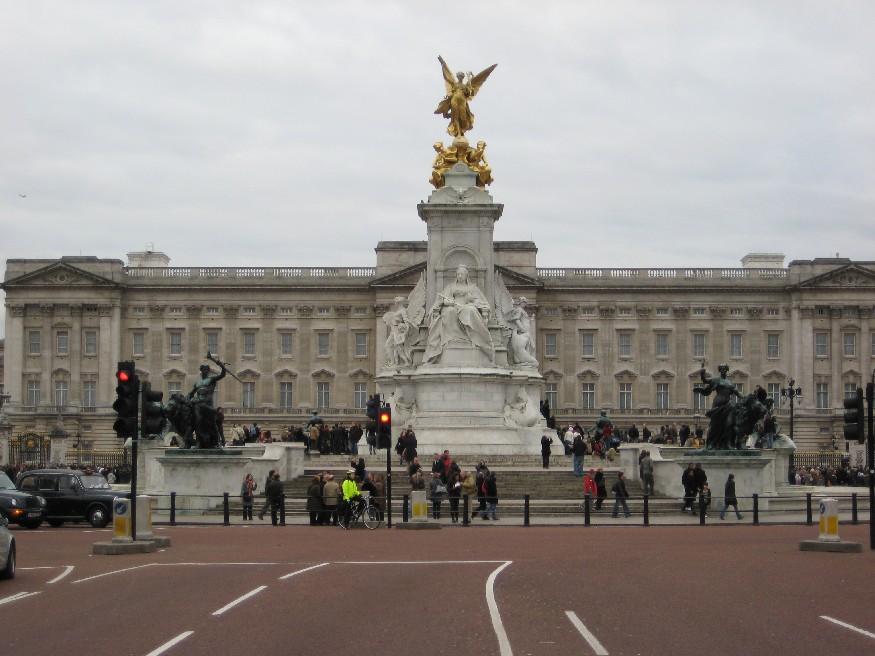
A closer view of the palace, this time taken from the middle of the street leading to the palace.
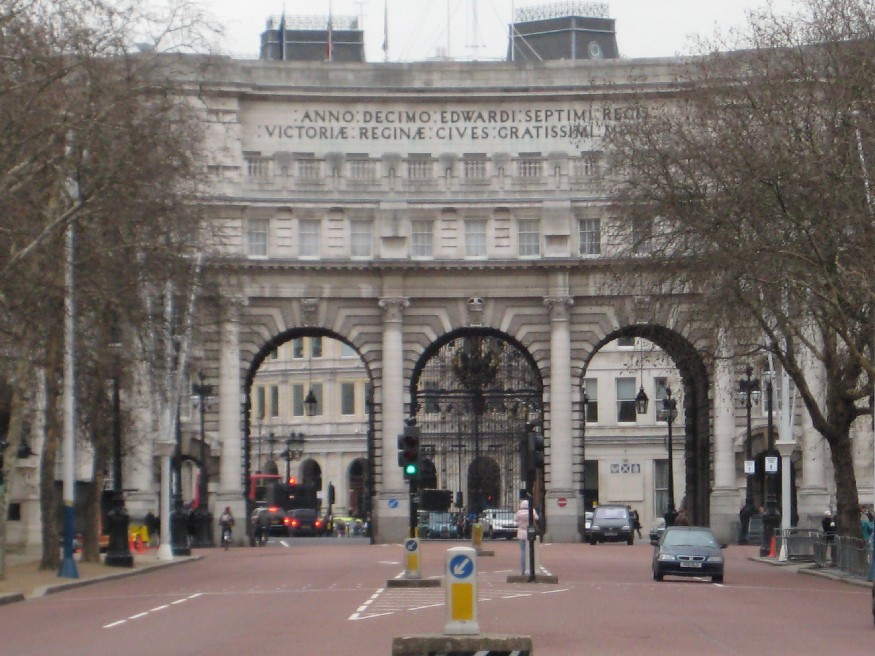
Admiralty Arch is a London office building commissioned by King Edward VII in memory of his mother Queen Victoria.
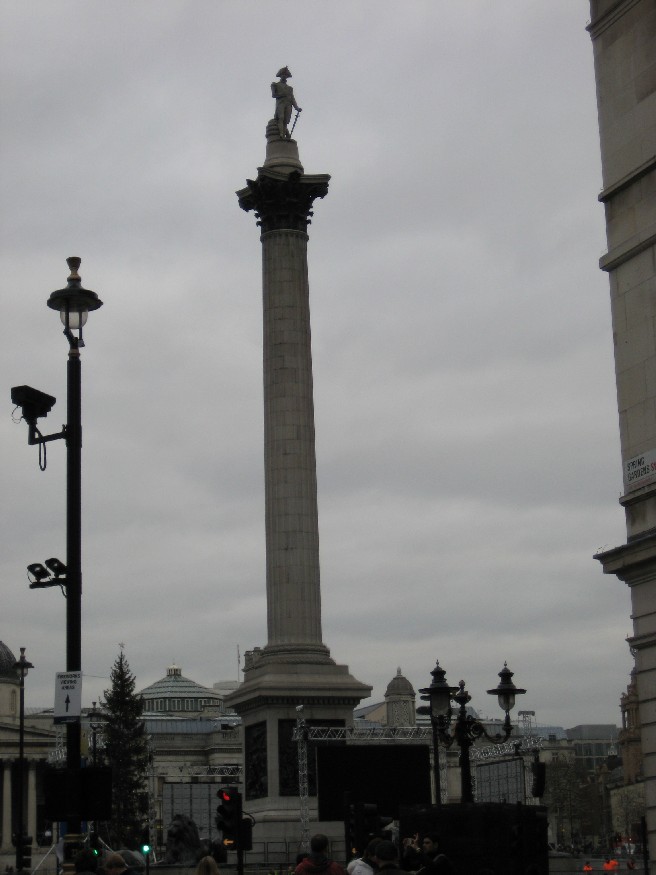
Nelson's Column is a momument in Trafalgar Square commemorating Nelson's death at the battle of Trafalgar. In 1805 Nelson defeated a combined French and Spanish fleet in the most decisive naval battle of the Napoleanic Wars.